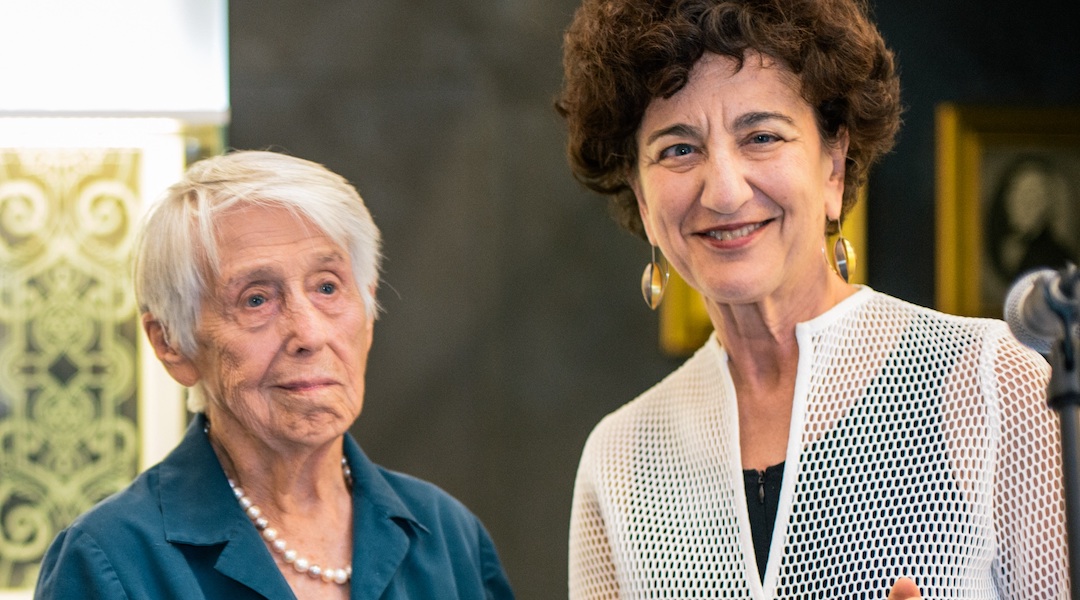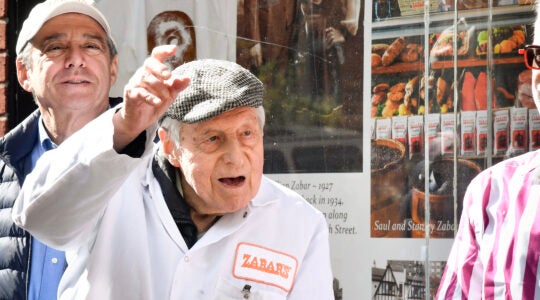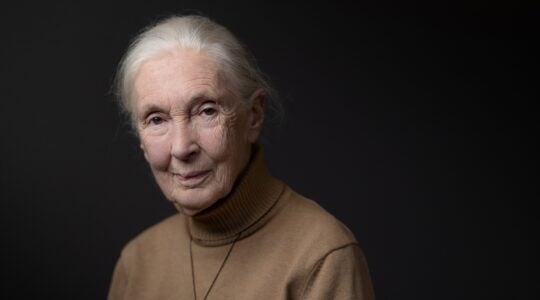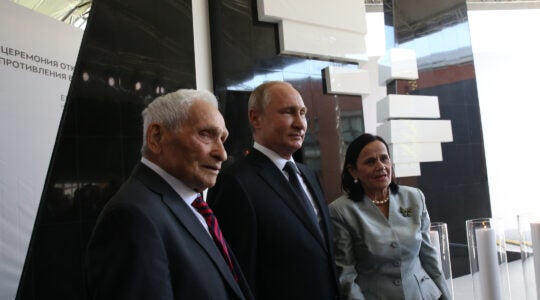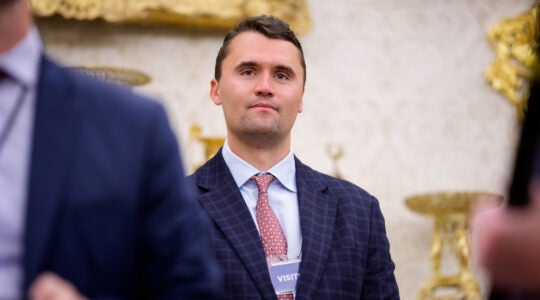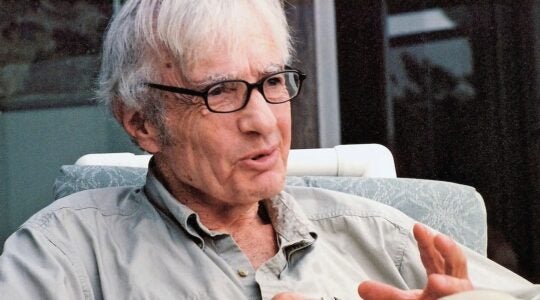(JTA) — Polish architects Maria Piechotka and her late husband recognized the significance of the wooden synagogues from the 17th and 18th century as unique to their country — the architecture and the richly colored murals.
“It was as if local Jews found the solution to the prohibition in the second commandment,” Piechotka once said, noting the commandment about graven images, in an interview for a documentary.
Piechotka and husband Kazimierz, who were not Jewish, recovered and advanced the knowledge about those centuries-old synagogues. Almost none survived the Holocaust. They also fought in the resistance during World War II.
Piechotka died Saturday in Warsaw. She was 100.
“The Jewish heritage world has lost a giant,” Ruth Ellen Gruber wrote in a remembrance on Jewish Heritage Europe, noting that she was among those who were mentored by the couple.
As architecture students following World War II, the Piechotkas carried on the studies and documentation of synagogue architecture launched earlier by their Jewish colleagues at the Warsaw Institute of Technology, including Oskar Sosnowski and his protege, Szymon Zajczyk. Both had perished in the Holocaust.
The Piechotkas’ influential books include “Wooden Synagogues,” first published in Polish in 1957 and two years later in English, and “Heaven’s Gates: Wooden Synagogues in the Territories of the Former Polish-Lithuanian Commonwealth,” published in 2004.
A legacy of Piechotka’s pioneering work is a stunning hand-built, nearly full scale re-creation of the Gwozdziec Synagogue’s timber roof, its gloriously painted cupola and a hand-carved wooden bima that are the centerpiece of the core exhibit at the Polin Museum of the History of Polish Jews in Warsaw.
“We knew that if we didn’t capture this at this given instant, if, God forbid, these materials would be damaged, then a huge piece of culture, European culture, world culture, would be completely forgotten,” Piechotka said in “Raise the Roof,” an award-winning documentary that traces the making of the exhibit created by Rick and Laura Brown of the Handshouse Studio in Massachusetts.
She said the Jewish artists who painted the interior, and signed their work, created a visual language of symbolic imagery.
“And this was the absolute uniqueness of these synagogues built here,” Piechotka said.
In 2016, Piechotka was awarded the Irena Sendler Memorial Award from Taube Philanthropies.
“Poles and Jews inside and outside of Poland are deeply indebted to the Piechotkas for their historic contributions to the recovery, preservation and memory of Jewish heritage in Poland,” the foundation’s executive director, Shana Penn, said at the ceremony held at the Polin Museum.
JTA has documented Jewish history in real-time for over a century. Keep our journalism strong by joining us in supporting independent, award-winning reporting.
